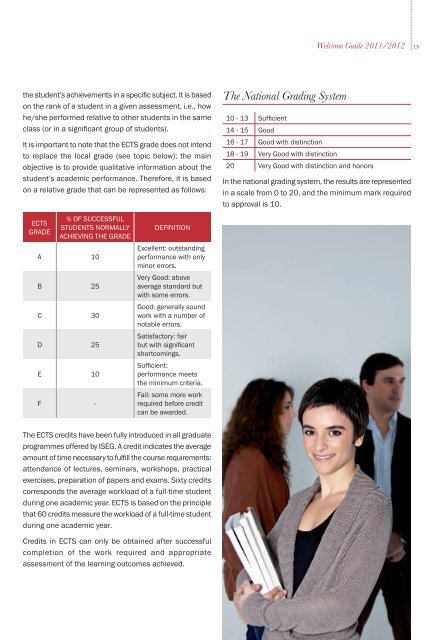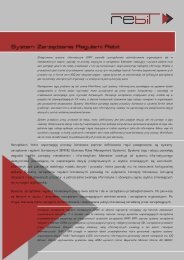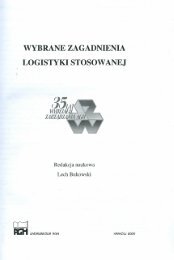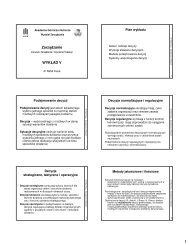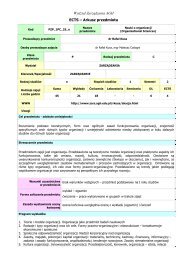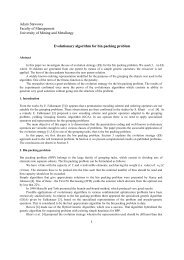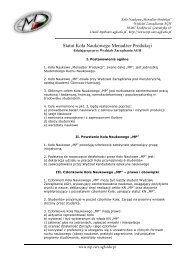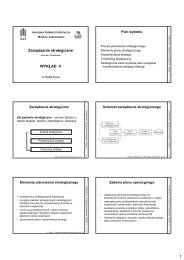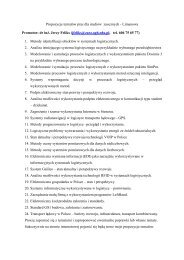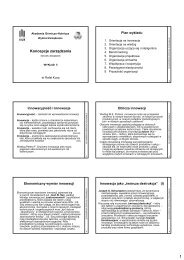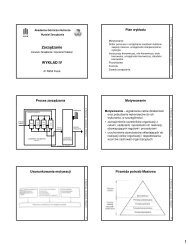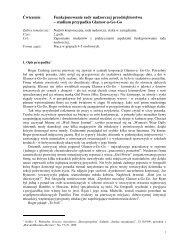Guide - Instituto Superior de Economia e Gestão
Guide - Instituto Superior de Economia e Gestão
Guide - Instituto Superior de Economia e Gestão
Create successful ePaper yourself
Turn your PDF publications into a flip-book with our unique Google optimized e-Paper software.
Welcome <strong>Gui<strong>de</strong></strong> 2011/2012 13<br />
the stu<strong>de</strong>nt’s achievements in a specific subject. It is based<br />
on the rank of a stu<strong>de</strong>nt in a given assessment, i.e., how<br />
he/she performed relative to other stu<strong>de</strong>nts in the same<br />
class (or in a significant group of stu<strong>de</strong>nts).<br />
It is important to note that the ECTS gra<strong>de</strong> does not intend<br />
to replace the local gra<strong>de</strong> (see topic below); the main<br />
objective is to provi<strong>de</strong> qualitative information about the<br />
stu<strong>de</strong>nt’s aca<strong>de</strong>mic performance. Therefore, it is based<br />
on a relative gra<strong>de</strong> that can be represented as follows:<br />
The National Grading System<br />
10 - 13 Sufficient<br />
14 - 15 Good<br />
16 - 17 Good with distinction<br />
18 - 19 Very Good with distinction<br />
20 Very Good with distinction and honors<br />
In the national grading system, the results are represented<br />
in a scale from 0 to 20, and the minimum mark required<br />
to approval is 10.<br />
ECTS<br />
Gra<strong>de</strong><br />
% of successful<br />
stu<strong>de</strong>nts normally<br />
achieving the gra<strong>de</strong><br />
A 10<br />
B 25<br />
C 30<br />
D 25<br />
E 10<br />
F -<br />
Definition<br />
Excellent: outstanding<br />
performance with only<br />
minor errors.<br />
Very Good: above<br />
average standard but<br />
with some errors.<br />
Good: generally sound<br />
work with a number of<br />
notable errors.<br />
Satisfactory: fair<br />
but with significant<br />
shortcomings.<br />
Sufficient:<br />
performance meets<br />
the minimum criteria.<br />
Fail: some more work<br />
required before credit<br />
can be awar<strong>de</strong>d.<br />
The ECTS credits have been fully introduced in all graduate<br />
programmes offered by ISEG. A credit indicates the average<br />
amount of time necessary to fulfill the course requirements:<br />
attendance of lectures, seminars, workshops, practical<br />
exercises, preparation of papers and exams. Sixty credits<br />
corresponds the average workload of a full-time stu<strong>de</strong>nt<br />
during one aca<strong>de</strong>mic year. ECTS is based on the principle<br />
that 60 credits measure the workload of a full-time stu<strong>de</strong>nt<br />
during one aca<strong>de</strong>mic year.<br />
Credits in ECTS can only be obtained after successful<br />
completion of the work required and appropriate<br />
assessment of the learning outcomes achieved.


